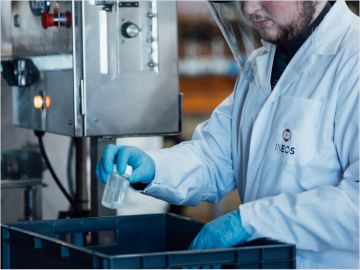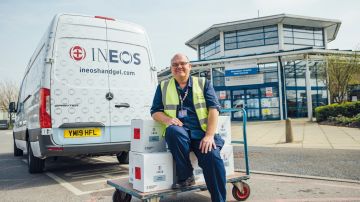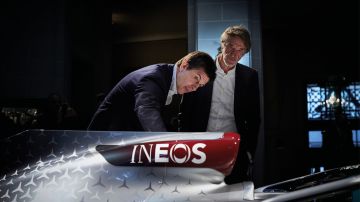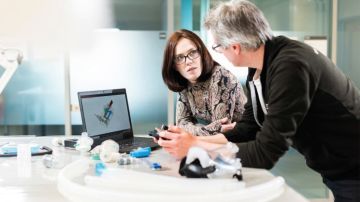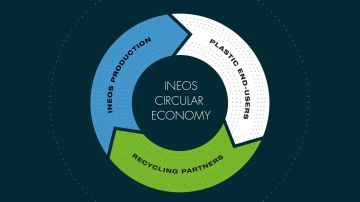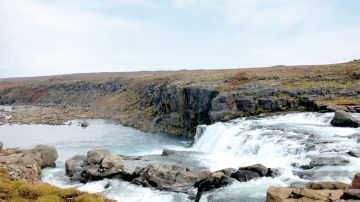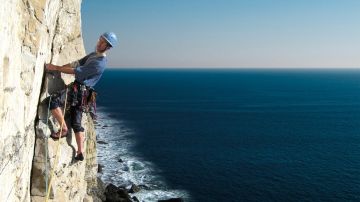World experts agree that they must work together if the wild North Atlantic salmon is to survive. At an international conference in Iceland, hosted by INEOS, the importance of sharing knowledge was laid bare as they discussed the alarming decline in salmon and efforts to bring this iconic fish back from the brink of extinction.
Scientists, academics and conservationists from Iceland, the UK, Norway, Ireland and Canada realised it is only when they get together that real change can happen.
“They are all doing amazing things, so what we wanted to do was bring them all together,” said Dr Peter Williams, INEOS Group Technical Director.
“By having a forum to share what we, and other researchers, are doing, we can help each other and create a bigger picture that adds to our understanding and allows us to focus our work and communicate it much more effectively.”
The numbers of North Atlantic salmon have fallen by 70% over the past 30 years and it is now endangered.
During the summit, Dr Colin Bull, from The Missing Salmon Alliance, said there was a ‘crying need’ for an initiative to collate all the information that was already out there.
“I believe there is a way we can pull everything together across disciplines, to turn the plethora of research and management data on salmon and its environment into a cohesive resource to focus and drive forward our collective efforts,” he said.
Gudni Gudbergsson, head of the freshwater division at The Marine and Freshwater Research Institute in Iceland, said there was already extensive co-operation between ICIS and NASCO, but both organisations had specific remits.
“As a backbone organisation that is okay, but new thinking and co-operation is needed and that is what we are doing here today,” he said.
Dr James Rosindell, a reader in biodiversity theory at Imperial College London, said academic and practical research data needed to be shared. “The research is often carried out by different groups who sometimes don’t want to give it up,” he said. He called for an overhaul of the traditional, academic system. “It is stressful and inefficient to be fighting against others to get funding, then reinventing the wheel, and then publishing papers that sit on the shelf collecting dust,” he said.
January’s summit in Reykjavik ended with a pledge to rapidly establish new conservation strategies to reverse the decline.
Many of those strategies are already being tested in Iceland, home of The Six Rivers Conservation Project founded by ­INEOS Chairman Sir Jim Ratcliffe. “It’s a holistic programme, backed by science,” said Peter.
As part of the project, botanists have been planting trees to enrich the soil around the rivers because healthier vegetation leads to a healthier environment for the organisms that live in the rivers.
About 1,000 smolts – maturing salmon – have been tagged so that scientists can track and monitor their behaviour.
And millions of salmon eggs have been planted into the gravel in rivers further upstream to help breed a healthier and stronger stock.
In addition, PhD students from The Marine and Freshwater Research Institute and Imperial College London have been comparing new data and the old data, gathered by the institute over the past 75 years. “We believe the Six Rivers project will help inform conservation in other countries,” said Peter.
Gisli Asgeirsson, CEO Strengur Angling Club, said the work was vital to help understand why the Atlantic salmon were disappearing – and what needed to be done to stop it. “Once we have this information, we can start to put in place measures that will help the salmon not only survive but thrive,” he said.
Sir Jim, who is an expert fly-fisherman, has been working with Strengur for years.
All profits from Strengur, which provides the best quality fly-fishing in the world, are now being reinvested back into salmon conservation in North East Iceland.
For more information and photos from the symposium go to: sixrivers.is/en/symposium
Symposium Key Speakers
January 23rd, The Hilton Nordica, Reykjavik, Iceland
Peter S. Williams, B.A., D.PhilINEOS Group Technical Director
Dr Colin BullThe Missing Salmon Alliance
Prof Guy WoodwardProfessor of Ecology and the Deputy Head of Life Sciences at Imperial College London
Dr Rasmus LauridsenHead of Fisheries Research at Game & Wildlife Conservation Trust
Else MöllerForester MSc at Austurbru
Prof Nikolai FribergResearch Director for Biodiversity at the Norwegian Institute for Water Research NIVA in Oslo, Norway
Gudni GudbergssonFreshwater division of the Marine and Freshwater Research in Reykjavik
James RvosindellReader in Biodiversity Theory at Imperial College London
Mark SaundersDirector, International Year of the Salmon – North Pacific Region
Philip McGinnityResearch Professor with the Environmental Research Institute at University College Cork
AcademicsPhD students from The Marine and Freshwater Research Institute and Imperial College London have been comparing new data against old data, gathered by the institute over the past 75 years.
ConservationistsMillions of salmon eggs have been planted into the gravel in rivers further upstream to help breed a healthier and stronger stock. And salmon ladders have been built to allow salmon to reach new spawning grounds further up the rivers.
ScientistsAbout 1,000 smolts – maturing salmon – have been tagged so that scientists can track and monitor their behaviour.
BotanistsBiologists, who specialise in plants, have been planting trees to enrich the soil around the rivers because healthier vegetation leads to a healthier environment for the organisms that live in the rivers.
Strengur Angling ClubAll profits from the club, which provides the best-quality fly-fishing in the world, are now being reinvested back into salmon conservation in North East Iceland.
The Six Rivers Project, now in year 4 of development, is making good progress
Our aim: to protect the North Atlantic Salmon, now endangered.
The means: a self-funding entity undertaking long-term conservation initiatives.
The actions: annual salmon egg planting, revegetation/tree planting, salmon ladder building, at a scale never attempted before.
The underpin: world-leading research. These initiatives will provide a real boost to the salmon population in North East Iceland. Nature will take her time, but we are already seeing positive signs.
Lots more to come - Bill Reid, Six Rivers & Strengur Board
